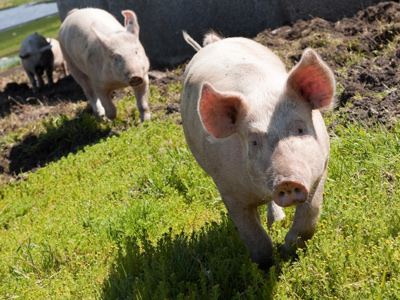

Animal Farm - Language
This Literature quiz is called 'Animal Farm - Language' and it has been written by teachers to help you if you are studying the subject at high school. Playing educational quizzes is a user-friendly way to learn if you are in the 9th or 10th grade - aged 14 to 16.
It costs only $19.50 per month to play this quiz and over 3,500 others that help you with your school work. You can subscribe on the page at Join Us
This high school English Literature quiz takes a look at language in Animal Farm by George Orwell. Language choice is one of the most fascinating aspects of Animal Farm. Deceptively simple language conveys the bewildering means by which a new utopia develops into another terrifying and oppressive regime. Napoleon and his propagandist Squealer, as well as the other pig leaders, use language as a weapon by changing history and obscuring the truth. In this text, those who are less literate and therefore unable to use language with the same ease and for the same range of purposes are at a terrible disadvantage.
Ready for more?
not all...
quizzers. Try to win a coveted spot on our Hall of Fame Page.






